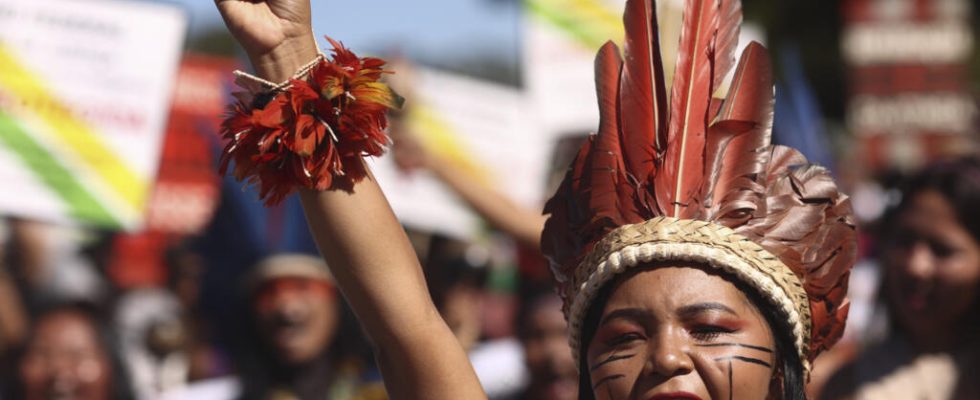Like every year for the past 20 years, thousands of representatives of indigenous peoples are gathered all this week in Brasilia as part of the Free Land Camp. The protection of their lands is at the heart of the demands of indigenous peoples. During his electoral campaign, President Lula promised to create reserves.
2 mins
Since Lula’s return to power, only ten new reserves have been created. An insufficient number according to the demonstrators who are asking the government to do more. “ I want peace, that the children are happy in their village, that they can play without fear. I think it’s a little slow, a little difficult for the movement because our lands have not yet been demarcated. So we come here to fight, to have a better future. So that they don’t take away our land », Says Terri Itaoca, a 16-year-old native, speaking to Raquel Miura, from RFI’s Brazilian language editorial team.
Read alsoBrazil: indigenous lands remain threatened, one year after Lula’s arrival
But the powerful agribusiness sector and its conservative allies who dominate Parliament are against the creation of these reserves, especially since these lands are often occupied illegally.
“ We must completely expel invaders from indigenous lands, whether Munduruku lands, Caiapó lands or Yanomami lands, where there are illegal mining or logging operations, said the Minister of the Environment, Marina Silva. We have already succeeded in expelling the invaders from the indigenous lands of the Apyterewa ethnic group. It’s only a beginning. We are aware that this is not enough and that we must work hard so that the indigenous peoples of Brazil obtain justice “.
Nearly 1.7 million indigenous people affected
One of Lula’s campaign promises before he came to power last year was to demarcate the ancestral lands of Brazil’s 1.7 million indigenous people. Many scientists believe that indigenous reserves play an essential role in the fight against global warming, as bulwarks against deforestation which increased sharply under the mandate of ex-far-right president Jair Bolsonaro (2019- 2022).
The agribusiness sector and its allies in Parliament managed to keep in place a controversial policy that the Supreme Court ruled unconstitutional. The so-called “temporal framework” thesis only recognizes as ancestral the lands occupied by the indigenous people when the Constitution was promulgated in 1988.
Read alsoIndigenous peoples facing global warming
However, the indigenous populations claim that this policy does not take into account their presence on these lands for centuries and claim to have been displaced from their territories on several occasions, in particular during the military dictatorship (1964-1985), which makes it impossible. determination of their presence in 1988.
